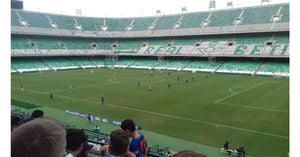Recently, the Atal Setu bridge, renowned as India’s longest sea bridge connecting Mumbai and Navi Mumbai, was closed for a marathon event, igniting fierce debate among citizens. The bridge was shut down from 11:00 PM Saturday, January 15, to 1:00 PM Sunday, causing significant disruptions for commuters reliant on this key traffic and trade route.
The Mumbai Metropolitan Region Development Authority (MMRDA) defended the closure, stating, “The closure is necessary to facilitate a marathon event being conducted by the authority along the 21-km-long Atal Setu.” This decision was met with mixed reactions, especially from commuters traveling to Navi Mumbai, Pune, or the Jawaharlal Nehru Port Trust (JNPT), who were required to seek alternative routes during this period, as indicated by the Navi Mumbai Traffic Police.
Many individuals expressed their grievances online, voicing the inconvenience caused by the closure. One user noted, “Vehicles are subject to hefty road taxes among other charges when purchasing them, so asking people to change directions for the sake of a marathon is incorrect.” This statement encapsulates the frustration felt by those who rely on the bridge for their daily commutes.
Opinions diverged significantly on this matter. While some felt marathons are acceptable on public roads—arguing, “We should have roads closed for runners and cyclists more often than they currently are”—others decried the frequent disruptions. A commentator, Axe77, stated, “I see absolutely no reason to be tolerant of disruption to this,” highlighting the sentiment of those who find such closures excessive.
Supporters of the marathon pointed out the tradition of running events upholding communal spirit and vitality. They referenced major international cities like New York and London, where major thoroughfares are routinely closed for marathons. “During the New York Marathon, significant bridges and avenues are closed to traffic without major issues,” noted one participant who has run multiple marathons.
Critics, on the other hand, argue against adopting ideas from more developed urban areas where the infrastructure supports such events. They contend, “This is all perfect for Western countries where there are many alternate routes. India’s congested cities lack the necessary infrastructure to manage such extensive road closures.”
The discussion has highlighted the growing concern over how public infrastructure is utilized. Some suggest there need to be strict regulations preventing repeated closures for non-essential events. One user remarked, “If it is okay to close off bridges for marathons today, then there’s no excuse not to allow political rallies or similar gatherings tomorrow.”
Authorities must weigh the community’s need for access against the potential benefits of hosting high-profile events like marathons. While marathons can promote health and wellbeing and contribute to local economies, they also disrupt normal traffic patterns, leading to serious inconveniences for many residents.
Future marathon planning will likely require balancing community access with event promotion. With many people expressing their dissatisfaction, it may be prudent for authorities to explore alternative routes for marathons, ensuring minimal disruption to commuters. Organizers, city planners, and residents must work together to strike this balance and keep the marathon spirit alive without severely inconveniencing those relying on these routes.
Whether through improved communication about traffic management or by finding appropriate locations for such events, the question remains: how can cities support both festive occasions like marathons and the daily lives of their citizens? This balance will be key moving forward as urban areas continue to host large events, potentially re-evaluated during upcoming marathons and similar events.



